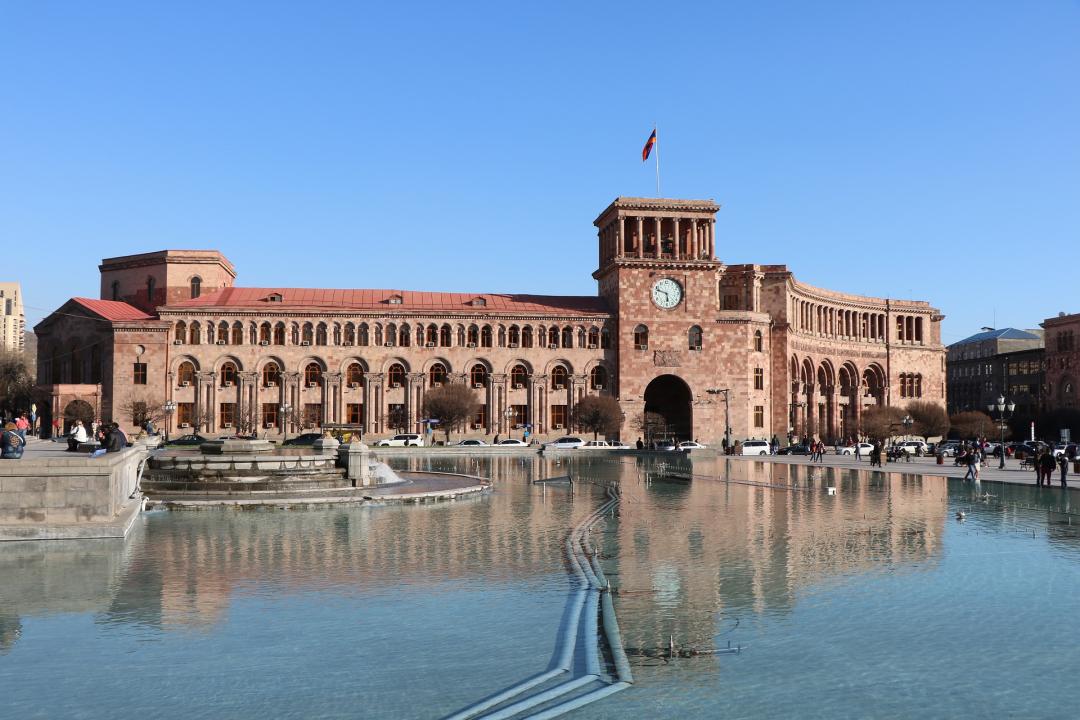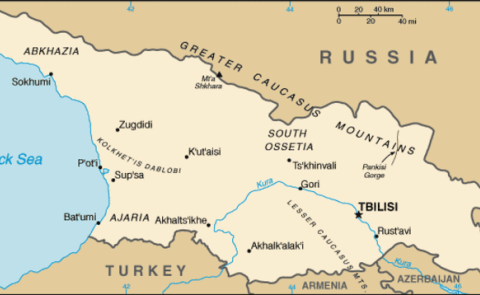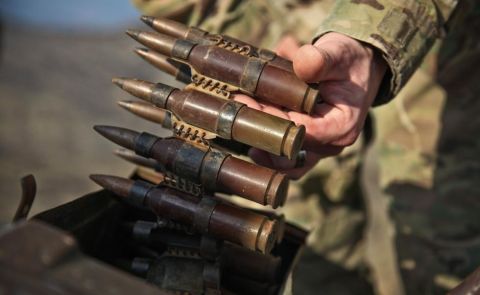
Government-Church Crisis in Armenia Continues

On June 6, Mariam Galstyan, Acting Head of Armenia’s State Commission for the Prevention of Corruption, told journalists that the commission had independently launched proceedings on the day Prime Minister Nikol Pashinyan posted a controversial statement.
Galstyan added that a complaint filed by lawyer Ara Zohrabyan was under review, with a decision expected by June 9 on whether to initiate a formal process. She clarified that if Pashinyan were found to have breached ethical standards, he would be required to issue a public explanation, but the matter would not be referred to the prosecutor’s office, as it pertains to ethics, not criminal conduct.
On the same day, Araik Harutyunyan, Chief of Staff of the Armenian Prime Minister’s Office, addressed related issues during a press briefing. He emphasized the government’s commitment to institutionalizing accountability for former officials and highlighted the need for legislative frameworks to reclaim illicit property. Regarding the controversy over the Catholicos of All Armenians and clergy celibacy vows, Harutyunyan stated that such inquiries were inevitable when issues arose. He stressed that no one was intruding into private lives, but concerns were raised within the church’s institutional framework. Addressing concerns about reputational damage to both church and state, Harutyunyan argued that confronting these issues would ultimately strengthen the church as an institution. In response to claims that the government resented the church’s higher public approval ratings, he cautioned that polls should be interpreted carefully and recalled that in 2021, the Armenian Apostolic Church, led by the Catholicos, opposed the “Civil Contract” party, yet the public delivered its verdict at the polls. Harutyunyan urged a clear distinction between the church as an institution and individual clergymen.
Later that day, Justice Minister Srbuhi Galyan was questioned in Parliament about potential violations of constitutional provisions separating church and state following Pashinyan’s comments on church governance. Galyan downplayed the concerns, stating that raising issues did not constitute interference. She noted that existing legislation regulates state-church relations and largely grants privileges to the church. On whether Pashinyan’s language violated ethical norms, Galyan remarked that the tone of public statements varies by individual and, absent legal violations, posed no issue. Regarding potential constitutional amendments to revise state-church relations, Galyan said that while such ideas could be discussed, no formal directives had been issued in connection with the Prime Minister’s comments.
On June 8, Prime Minister Nikol Pashinyan intensified his rhetoric in a social media post, stating, “The state belongs to the people. The church belongs to the people. We have returned the state to the people. We must also return the church to the people.”
On the same day, Pashinyan criticized Levon Ter-Petrosyan, Armenia’s first president, over his meeting with Garegin II, the Catholicos of All Armenians. In a Facebook post, Pashinyan called Ter-Petrosyan “the founder of the practice of falsifying elections in Armenia” and accused him of supporting “a falsifier who hates the people, just like himself.”
Simonyan Condemns Ter-Petrosyan for Inaction During March 1 Yerevan Shootings; Criticizes His Meeting with Catholicos
On June 8, Alen Simonyan, Chairman of Armenia’s National Assembly, reacted to the meeting between Levon Ter-Petrosyan, Armenia’s first president, and Garegin II, the Catholicos of All Armenians.
In a Telegram post, Simonyan stated that on March 1, 2008, Ter-Petrosyan and his counterpart failed to leave their homes while people were being shot and calling their names, leaving supporters exposed to killers affiliated with Robert Kocharyan and Serzh Sargsyan. He recalled that after Armenian blood was spilled on Yerevan’s streets, Ter-Petrosyan claimed he had “spent the calmest night of all time.”
Simonyan argued that Ter-Petrosyan is mistaken if he believes he will be remembered as a symbol of independence. Instead, he described him as a symbol of moral defeat, political failure, and the collapse of hope, democracy, and the people’s expectations. Simonyan urged Ter-Petrosyan to “stop hating the Armenian people” and abandon the illusion that he is “above everyone, smarter than everyone.”
He concluded by telling Ter-Petrosyan to “stay alone in your black cave on top of the hill” and to remember “the names of your friends you destroyed.”
See Also


Separatist Abkhazia and Russia Reaffirm Strategic Partnership in Moscow Meeting

Weekly Brief on Military Situation in South Caucasus Countries (June 2–8, 2025)

Armenia–Russia Trade Hits $12 Billion in 2024, Up 60%

Armenia and Russia Reaffirm Strategic Ties Amid Speculation of Strained Relations

